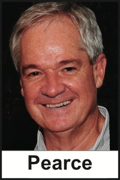Rascals case in brief
In the beginning, in 1989, more than 90 children at the Little Rascals Day Care Center in Edenton, North Carolina, accused a total of 20 adults with 429 instances of sexual abuse over a three-year period. It may have all begun with one parent’s complaint about punishment given her child.
Among the alleged perpetrators: the sheriff and mayor. But prosecutors would charge only Robin Byrum, Darlene Harris, Elizabeth “Betsy” Kelly, Robert “Bob” Kelly, Willard Scott Privott, Shelley Stone and Dawn Wilson – the Edenton 7.
Along with sodomy and beatings, allegations included a baby killed with a handgun, a child being hung upside down from a tree and being set on fire and countless other fantastic incidents involving spaceships, hot air balloons, pirate ships and trained sharks.
By the time prosecutors dropped the last charges in 1997, Little Rascals had become North Carolina’s longest and most costly criminal trial. Prosecutors kept defendants jailed in hopes at least one would turn against their supposed co-conspirators. Remarkably, none did. Another shameful record: Five defendants had to wait longer to face their accusers in court than anyone else in North Carolina history.
Between 1991 and 1997, Ofra Bikel produced three extraordinary episodes on the Little Rascals case for the PBS series “Frontline.” Although “Innocence Lost” did not deter prosecutors, it exposed their tactics and fostered nationwide skepticism and dismay.
With each passing year, the absurdity of the Little Rascals charges has become more obvious. But no admission of error has ever come from prosecutors, police, interviewers or parents. This site is devoted to the issues raised by this case.
On Facebook
Click for earlier Facebook posts archived on this site
Click to go to
Today’s random selection from the Little Rascals Day Care archives….
Click for earlier Facebook posts archived on this site
Click to go to
Today’s random selection from the Little Rascals Day Care archives….
Brent Adams & Associates begins to clean up its act
Nov. 7, 2011
Last week I mentioned a misleading characterization on the website of the Raleigh personal-injury law firm Brent Adams & Associates:
“A highly publicized case occurred in coastal North Carolina almost 30 years ago. Making national headlines, the Little Rascals Day Care Center was run by a husband-and-wife team, Bob and Betsy Kelly…. The Little Rascals abuse case involved 90 children who all required extensive therapy sessions.”
After I asked that the passage be removed, instead this sentence (along with a Wikipedia link) was added:
“The convictions were later overturned by the NC Court of Appeals and all charges were dropped.”
Better. A lot better. But the remaining reference to “90 children who all required extensive therapy sessions” is still exactly 90 children away from being accurate.
Death noted: Former publisher of Edenton paper

Pete Manning
March 9, 2019
Pete Manning, 89, died Feb. 21 at his home in Edenton. Before retiring, Manning worked more than 50 years at the Chowan Herald, most prominently as publisher.
As prosecution of Edenton Seven lurched forward, members of the local “Believe the Children” cohort grew wary of the news media. Early on, however – before seeing themselves on “Frontline” — they had actually sought the spotlight.
Jack D. Grove, managing editor of the Herald, recalled that short-lived era to journalist David Loomis:
“I was approached by several influential businessmen who clouded up and rained all over me for putting a [Little Rascals] story on the back page. I said, ‘Go tell Pete Manning, don’t tell me.’ These businessmen, almost all parents of Little Rascals children, went into a closed-door meeting with Pete. We never again had a story anywhere but on the front page after that.”
Unfortunately, the Herald’s front-page coverage was painfully passive at best.
![]()
In search of justified public panics….

3BLMedia.com
Kevin Drum
March 28, 2016
“I was thinking about recent public panics and started listing a few of them in my mind. This is just off the top of my head:
- Crack babies
- Super predators
- Lehmann/AIG/Countrywide etc.
- Mad cow
- Deepwater Horizon
- Daycare child molesters
- Ebola
- ISIS/Syrian refugees
“I’m not saying that none of these were justified. Big oil spills are no joke. Ebola was certainly a big deal in Africa. The financial collapse of 2008 wasn’t mere panic.
“And yet, generally speaking it seems as if public panics are either completely unjustified or else wildly overwrought. Am I missing any recent examples where there was a huge panic and it turned out to be wholly justified? HIV would have been justified in the early ’80s, but of course we famously didn’t panic over that — other than to worry about getting AIDS from toilet seats. Help me out here….”
– From “Do We Panic Too Much? (Spoiler: Yes We Do)” by Kevin Drum at Mother Jones (March 24)
![]()
Advising parents ‘one of the damnedest things I ever did’
 Feb. 18, 2013
Feb. 18, 2013
Gov. Jim Hunt was serving his fourth term (1997-2001) when prosecutors dropped the last Little Rascals charges. Although Gary Pearce, Hunt’s longtime adviser and later biographer, doesn’t remember the governor being involved in the case, Pearce experienced his own Edenton moment:
“I actually got called by one of the parents who had heard of me. I met with them and worked with them on a program that UNC-TV did (in 1993 to give parents a chance to respond to “Innocence Lost: The Verdict”). I did it just out of curiosity. It was one of the damnedest things I ever did.
“What the parents were claiming happened was, in the truest sense of the word, incredible. But they seemed absolutely and genuinely and sincerely convinced that it had happened….
“The best word to describe the whole thing is ‘gothic.’”
Defense attorneys were excluded from the program, UNC-TV director Tom Howe explained, because “We’re not really interested in getting into a tit-for-tat about guilt or innocence.”











0 CommentsComment on Facebook